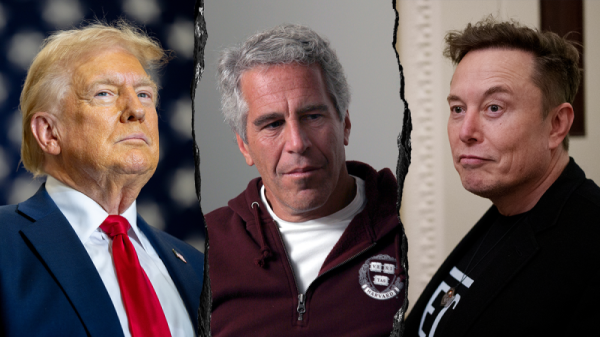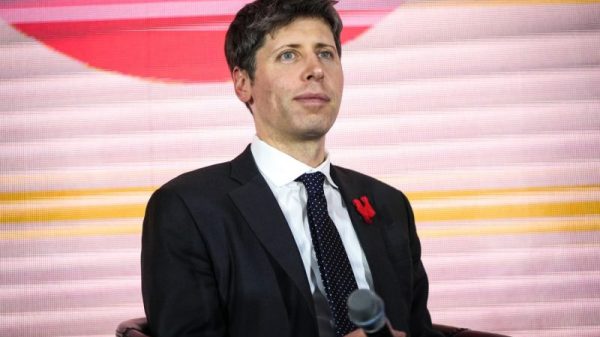In The Road to Serfdom, F.A. Hayek called cultural historian and philosopher Moeller van den Bruck “the patron saint of National Socialism.” Hayek quoted him describing the fierce opposition of German youth to liberalism: “Liberalism is a philosophy of life from which German youth now turns with nausea, with wrath, with quite peculiar scorn, for there is none more foreign, more repugnant, more opposed to its philosophy. German youth today recognizes the liberal as the archenemy.”
Van den Bruck was referring to classical liberalism. Today’s youth are again in revolt against classical liberalism.
In the City Journal, professor Eric Kaufmann reports, “While the American public leans two-to-one in favor of cultural liberalism, a majority of Americans under 30 incline toward cultural socialism.” Cultural socialism, he writes, “has inspired race-based pedagogies and harsh punishments for controversial speech” and promotes “equal results and harm prevention for identity groups over individual rights.”
Alarmingly, interpreting survey data, Kauffman argues “progressive illiberalism of young people” is not just a phase young people are passing through.
Suppressing freedom of thought and speech has never ended well, and the same plot can produce tragic consequences again. We would be wise to use historical evidence to see where the youth’s turn against classical liberalism may lead.
Joachim Fest wrote Hitler, a biography and historical portrait of Germany. In the period before Hitler came to power in Germany, Fest observed, the Nazi party “became for a while a new kind of youth movement.”
Thomas Childers, in his history of Nazi Germany, quotes a 1933 statement by Hitler in which the goals of his program for indoctrinating youth are set out: “My program for educating youth is hard. Weakness must be hammered away. I want a youth before which the world will tremble . . . a brutal, domineering, fearless, cruel youth.”
By 1935, Childers observed, “the party had managed to insert itself into the family, driving a wedge between parent and child, teacher and student, priest and young parishioner.” “Parental rights and personal freedom” eroded. When children denounced their parents, their parents lost their jobs.
Childers describes one 1936 roundup of Jews: “At the front of the procession were youths who chanted ‘Jew Perish.’” Such youths would feel welcome on some college campuses today.
Heinrich Mann was the older brother of the Nobel laureate in literature, Thomas Mann. Heinrich, himself a writer, was an ardent critic of the Nazis and fled Germany in 1933.
In a 1934 article for Foreign Affairs, “Dictatorship of the Mind,” Heinrich Mann explained that Nazi youth “were the first to applaud” Nazi doctrines: “The least resistance to all this [Nazi policies] comes from the youth. Always susceptible to irrational enthusiasm and appeals to collective action, the young men of Germany are the very basis of the dictatorship.”
Mann explored how the Nazis went beyond previous dictatorships, beyond directing the economy to control thought. He wrote, “The German dictatorship is perhaps unique in claiming nothing less than complete control over the whole intellectual and spiritual life of the nation,” tolerating “neither opposition nor neutrality.” Mann was apparently unaware of developments in Stalinist Russia, where the communists were developing their own terror system for controlling minds.
Mann wrote that German youth were the chief backers of thought dictatorship: “If thought is now controlled in Germany, instead of being free, it is chiefly the fault of the younger generation. They sing ‘We are the Soldiers of the Future’.”
Mann described the extent of this thought dictatorship: “Only official truths are admitted, and only such creative work as happens to serve the purpose of the authorities.” For the Nazis, “Everything in the arts and sciences which contradicts or goes beyond the National Socialist doctrine is looked upon as non-existent, simply by reason of the fact that the artists and thinkers concerned have left Germany.”
Today, if you disagree with the progressive orthodoxy about climate change or trans issues, young people will look upon you as “non-existent.”
A survey asked respondents the extent to which they agreed or disagreed with this statement: “My fear of losing my job or reputation due to something I said or posted online is a justified price to pay to protect historically disadvantaged groups.” Kaufmann reports the finding that only 27% of respondents under the age of 30 disagreed with this statement.
Astoundingly, “Younger age brackets are both more fearful of cancel culture and more supportive of it than are older age groups.” In short, like National Socialist youth, individual rights mean nothing to young people today.
The loss of talented people with different opinions was a plus for the Nazis. Mann observed, “Having eliminated all opposition, the government is far from regretting the loss of eminent personalities which added to the permanent glory of the country. It is delighted to have to deal only with minds which are timid, with talents so mediocre that they can easily be directed.”
Do you remember when Hillary Clinton saw some voters as “deplorables” and some “irredeemable?” In Nazi Germany there were “irreconcilables.” Mann wrote, “The irreconcilables have been eliminated in advance; there remain only the weak and the mediocre to be dealt with, not to mention the shrewd who, after having made their way in a free regime are quite prepared to profit from the methods of a dictatorship.”
With all dissenting opinions eliminated, what remained was propaganda “subordinated to the will of a single chief, named Goebbels.” In 2021, the CEO of NPR, Katherine Maher lamented that “our reverence for the truth might be a distraction that’s getting in the way of finding common ground and getting things done.”
In Nazi Germany, the ability to read, think, and reflect were gone. Mann explained,
Germany has promptly lost the habit of reading. Partly this is because people have little time for it, being constantly occupied with manifestations in favor of the government, military night marches, and forced labor on behalf of a few people of wealth. Every German is conscripted for life. Never being alone for a minute, how can he think?
Mann observed, “Controlled thought… has distorted the minds of whole generations of young folk, and it leaves them no time for learning.”
The Nazi system, Mann observed, “would not work without violent pressure on the unwilling.” And just like on today’s campuses, Nazi youth punished those out of favor with the Nazi orthodoxy:
Neither a critical sense nor common sense prevented the students from driving out professors who happened to be Jewish, democratic, or simply merely honest. Nor has it prevented them from taking bloody reprisals against their classmates who hold different ideas from theirs. From the beginning, the movement exploited the youths of less than twenty years.
Mann’s prescient warnings issued in 1934 are applicable today. The safety valves of criticism are missing when thought is controlled. He warned, “Catastrophes can approach unannounced. History has recorded, times without number, the dangers and degradations caused by the suppression of freedom of conscience.”
In Mann’s time and ours, “It is sad to see one generation of men going back on the moral conquests made by its predecessors.” Mann wrote that “truth” had become “a mere matter of convention.”
Mann had an optimistic message for embattled champions of liberty. Those who hijack truth and suppress freedom “are powerfully entrenched and their capacity for harm is far from exhausted. They will last, and they will make the most of their opportunities before they disappear. But disappear they will, and free thought will survive them. On that score, too, history leaves no doubt.”

































